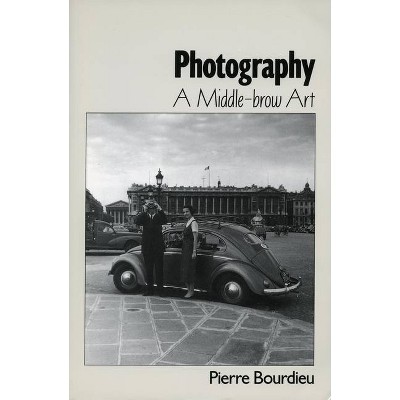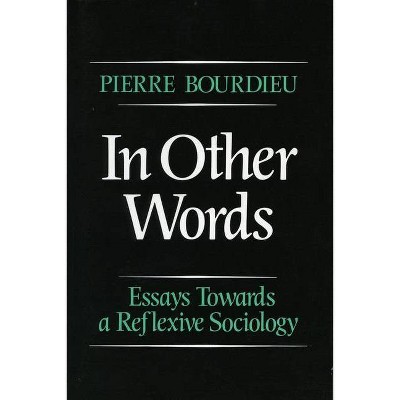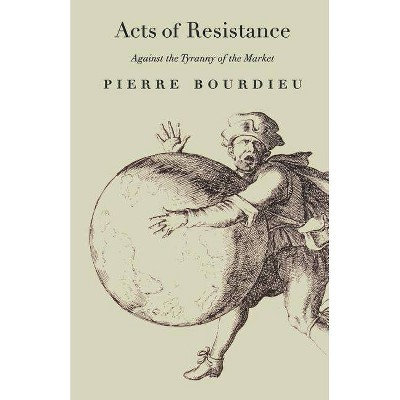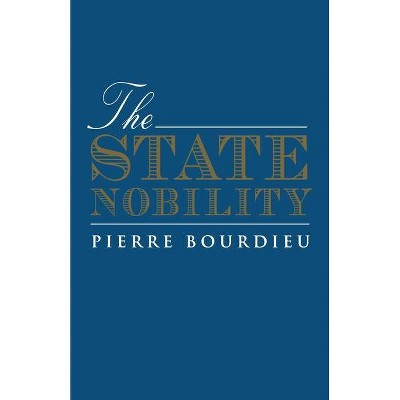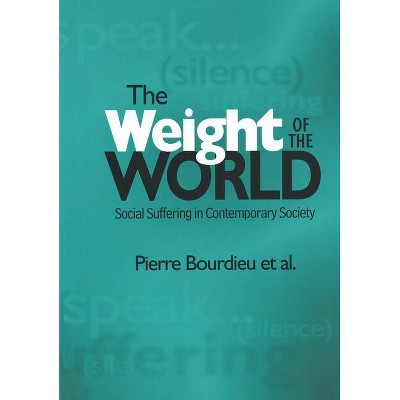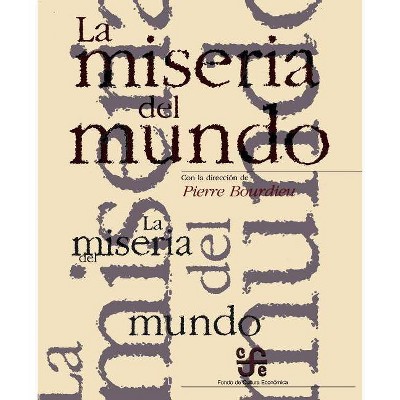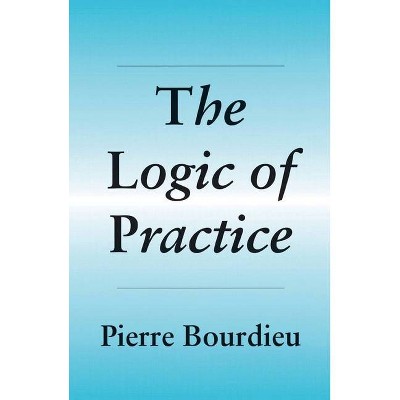Picturing Algeria - (Columbia / Ssrc Book) by Pierre Bourdieu (Paperback)
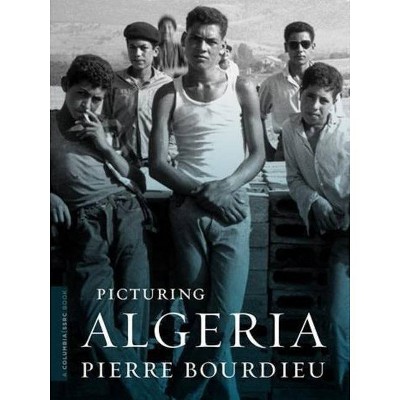
Similar Products
Products of same category from the store
AllProduct info
<p/><br></br><p><b> About the Book </b></p></br></br><p>As a soldier in the French army, Pierre Bourdieu took thousands of photographs documenting the abject conditions and suffering (as well as the resourcefulness, determination, grace, and dignity) of the Algerian people as they fought in the Algerian War (1954-1962). Sympathizing with those he was told to regard as "enemies," Bourdieu became deeply and permanently invested in their struggle to overthrow French rule and the debilitations of poverty. </p><p>Bourdieu immediately undertook the creation of a new ethnographic-sociological science based on his experiences--one that was capable of explaining the mechanics of French colonial aggression and the impressive, if curious, ability of the Algerians to resist it. This volume pairs 130 of Bourdieu's photographs with key excerpts from his related writings. It also features an interview with Bourdieu in which he speaks to his experiences in Algeria, its significance on his intellectual evolution, his role in transforming photography into a means for social inquiry, and the duty of the committed intellectual to participate in an increasingly troubled world.</p><p/><br></br><p><b> Book Synopsis </b></p></br></br>As a soldier in the French army, Pierre Bourdieu took thousands of photographs documenting the abject conditions and suffering (as well as the resourcefulness, determination, grace, and dignity) of the Algerian people as they fought in the Algerian War (1954-1962). Sympathizing with those he was told to regard as "enemies," Bourdieu became deeply and permanently invested in their struggle to overthrow French rule and the debilitations of poverty. <p/>Upon realizing the inability of his education to make sense of this wartime reality, Bourdieu immediately undertook the creation of a new ethnographic-sociological science based on his experiences--one that became synonymous with his work over the next few decades and was capable of explaining the mechanics of French colonial aggression and the impressive, if curious, ability of the Algerians to resist it. <p/>This volume pairs 130 of Bourdieu's photographs with key excerpts from his related writings, very few of which have been translated into English. Many of these images, luminous aesthetic objects in their own right, comment eloquently on the accompanying words even as they are commented upon by them. Bourdieu's work set the standard for all subsequent ethnographic photography and critique. This volume also features a 2001 interview with Bourdieu, in which he speaks to his experiences in Algeria, its significance on his intellectual evolution, his role in transforming photography into a means for social inquiry, and the duty of the committed intellectual to participate in an increasingly troubled world.<p/><br></br><p><b> Review Quotes </b></p></br></br><br><i>Picturing Algeria</i> is worth its price for the 130 images alone... An invaluable contribution to scholarship. The photographs offer a rare glimpse into an unfamiliar aspect of Bourdieu's work in Algeria, displaying the literal lenses through which he framed his research sites.--Journal of Historical Geography<br><br>A seminal work that is strongly recommended reading.--The Midwest Book Review<br><br>With its translation of lesser-known texts, thoughtful juxtaposition of texts and images, and, above all, beautiful presentation of the photographs, this book provides a fascinating glimps into the working process and intellectual origins of the most important scholars of the twentieth century.--H-France Review<br><br><i>Picturing Algeria</i> juxtaposes Bourdieu's photographs with excerpts from his later writings, enabling the reader/viewer to grasp the destruction left in the wake of colonial violence.--Olivia Harrison "The Los Angeles Review of Books "<br><br>Essential reading for those who are interested in the link between colonial politics and ethnographic practices.--Muriam Haleh Davis "Arab Studies Journal "<br><p/><br></br><p><b> About the Author </b></p></br></br>Pierre Bourdieu (1930-2002) is widely regarded as one of the most important French intellectuals of the twentieth century. He served as chair of sociology at the College de France and authored numerous seminal works, including <i>The Social Structures of the Economy</i>; <i>The Weight of the World: Social Suffering in Contemporary Society</i>; <i>The State Nobility: Elite Schools in the Field of Power</i>; <i>Practical Reason: On the Theory of Action</i>; <i>The Rules of Art: Genesis and Structure of the Literary Field</i>; <i>Language and Symbolic Power</i>; and <i>Distinction: A Social Critique of the Judgement of Taste</i>. <p/>Craig Calhoun is director of the London School of Economics and Political Science. <p/>Franz Schultheis is a professor of sociology at the University of St. Gallen. He has also taught at the University of Geneva, the University of Neuchâtel, and the University of Montreal. A longtime collaborator of Pierre Bourdieu, he has been heavily involved in disseminating the sociologist's teachings throughout Germany and Europe. <p/>Christine Frisinghelli is a curator and publisher in contemporary photography. She cofounded the journal <i>Camera Austria International</i> in 1980 and acted as its editor in chief until 2010. She currently heads the board of the Camera Austria association and is custodian of Pierre Bourdieu's photographic archive.
Price History
Price Archive shows prices from various stores, lets you see history and find the cheapest. There is no actual sale on the website. For all support, inquiry and suggestion messagescommunication@pricearchive.us
